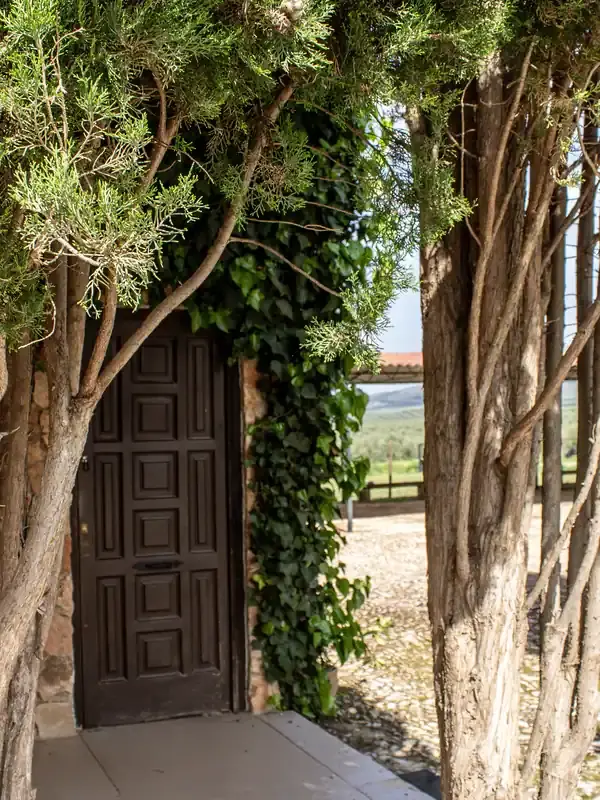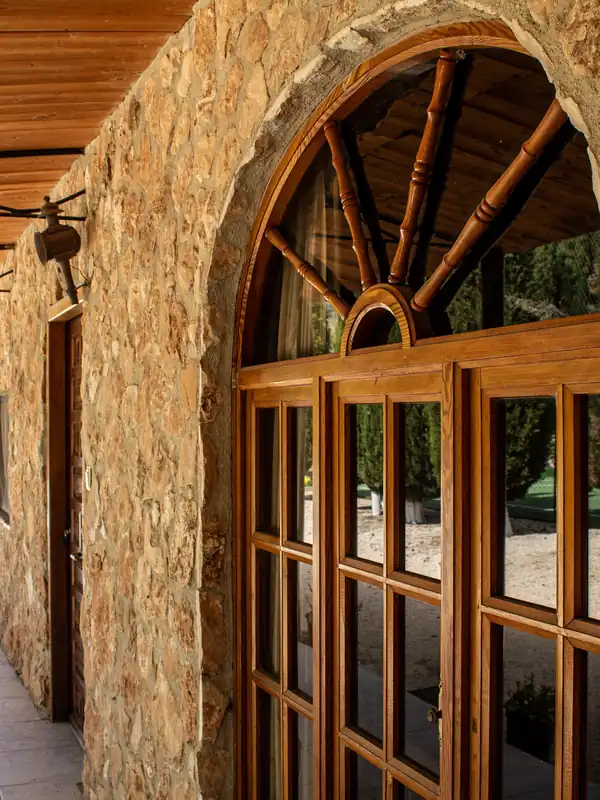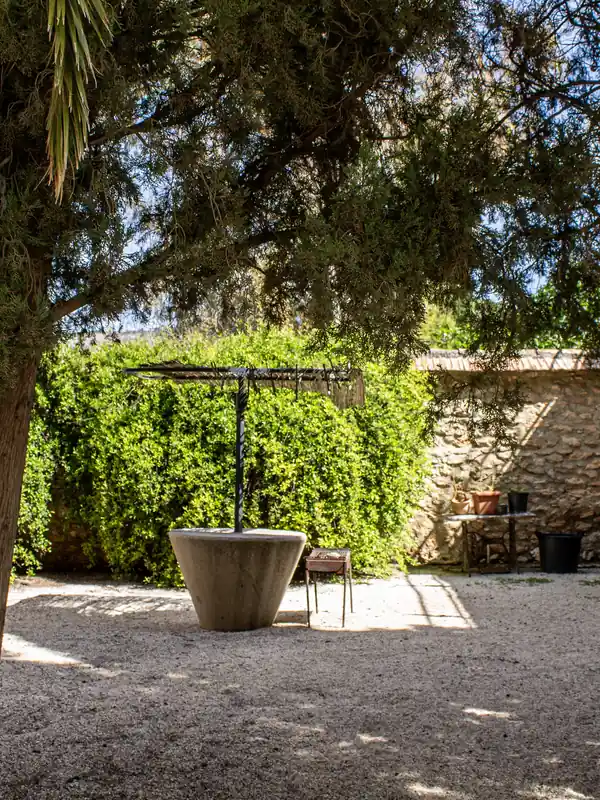Drug and Alcohol Rehab in Bloemfontein
May 29, 2025
Bloemfontein, also known as the City of Roses, is the capital of the Free State province and the judicial capital of South Africa. While it's popular among tourists for its natural beauty and an...
Finding effective drug and alcohol rehab in Johannesburg can feel daunting, especially if you or someone close to you wants a high standard of care and real, lasting results. The city’s rehab facilities come in all shapes and sizes; approaches, comfort, and even success rates can differ wildly. It’s worth taking the time to look at every option so you or your loved one lands somewhere that truly fits individual needs.
Finding the right rehabilitation programme is key to meaningful addiction recovery. Options in and around Johannesburg offer different levels of support, structure, and environments to help guide your healing process.


Residential or inpatient treatment means living at the rehab centre full-time. This setup removes distractions and daily triggers so you can focus on getting better. Centres in Johannesburg offer 24/7 care, medical supervision, and structured routines. That stability can be a game-changer if you’re struggling to break old patterns.
Most residential programmes use a mix of therapies, cognitive behavioural therapy, group counselling, and family involvement are common. This lets your care team tackle both addiction and any mental health issues at the same time.
Outpatient treatment lets you live at home while attending scheduled rehab sessions. It’s a good fit if you have work or family you can’t leave behind. Johannesburg’s outpatient centres offer flexibility, usually focusing on therapy, relapse prevention, and support groups. Outpatient treatment is often more affordable than residential care, and you can stay connected to your local support network.
But let’s be honest, staying motivated and avoiding triggers at home can be tough.

Drug and alcohol rehab in Johannesburg usually involves a variety of evidence-based treatments, each targeting different pieces of the addiction puzzle. Knowing your options helps you make smarter choices for your recovery.
Detox is almost always the first step in addiction programmes. You’ll safely clear substances like heroin, alcohol, or prescription meds from your system, ideally under medical supervision. That’s especially important for alcohol and opioids, withdrawal can get risky fast. Certified rehab centres provide a medically monitored environment, with doctors and nurses ready to step in if things get rough.
Mental health treatment is crucial if you’re dealing with depression, anxiety, trauma, or similar issues alongside addiction. Professional care should address both substance use and mental health, working to stabilise mood, sleep, and overall wellbeing. You’ll probably meet with psychiatrists, psychologists, or counsellors to get a proper diagnosis and treatment. Cognitive Behavioural Therapy (CBT) and medication are common tools, helping with mood swings and cravings.
Dual diagnosis treatment is for folks facing both addiction and a mental health disorder. It’s important because ignoring one often messes up progress on the other. Clinicians will assess you for co-occurring conditions and then build an integrated plan that addresses both. This might mean medical detox, psychiatric evaluation, and targeted therapy all at once.
Holistic treatment aims to heal the mind, body, and spirit, not just the addiction itself. It’s about more than managing withdrawal or mental health symptoms. Programmes often include yoga, meditation, and art therapy, which help with stress, self-awareness, and emotional regulation. Nutrition and exercise also usually play a part in supporting overall health.
A solid rehab programme will offer a mix of therapies and treatment styles, like individual therapy, group therapy and motivational interviewing. At the right facility, you’d get access to a broad range of therapies, all led by professionals who know addiction and mental health inside out.

Rehab costs in South Africa vary widely depending on treatment type, facility quality, and location. There are basic public centres and high-end luxury rehabs, each with its own price tag and perks. Typical costs for private rehabs range between R15,000 and R60,000. Outpatient programmes usually cost less than residential stays, but they’re not for everyone. Inpatient treatment, including accommodation and intensive therapy, comes at a higher price.
If South African rehab options seem out of reach or you want more privacy, heading abroad could make sense. At Sierra Recovery in Malaga, Spain, you’ll get a personalised plan, attentive medical care, and peaceful accommodation surrounded by nature.
Johannesburg’s got some real challenges when it comes to alcohol and drug addiction. Substance abuse is weighing heavily on families and individuals all over the city.
Alcohol addiction is probably the most common issue. It doesn’t really care how old or where you’re from, anyone can get caught up in it. The easy access to alcohol here makes it challenging for some people to stay in control. That’s led to a rise in dependence and a bunch of related health problems.
Drug addiction is creeping up, too. Illicit drugs and even prescription meds are showing up more often in local clinics. It’s not just your health that takes a hit with substance abuse. Relationships, jobs, and mental wellbeing can get tangled up in the fallout.

Johannesburg has a range of rehab centres for alcohol and drug dependency. Each one brings something different to the table, treatment styles and support services, amongst others.
Houghton House is a solid pick in Johannesburg if you want a place that covers both detox and long-term rehab. They offer both inpatient and outpatient programmes for alcohol and drug issues.
432 York Ave, Ferndale, Randburg, 2194, South Africa
Another respected option is Changes Rehab Johannesburg. They’re licensed for drug and alcohol detox and work with South African medical aids, so it’s more accessible for many folks.
216 Weltevreden Rd, Northcliff, Randburg, 2115, South Africa
The Foundation Clinic is an addiction treatment centre on Pretoria St in Oaklands. These guys are LGBTQ+ friendly and offer various modalities and programs.
41 Pretoria St, Oaklands, Johannesburg, 2192, South Africa
Journey Recovery provide dual diagnosis and group counselling and offers outpatient treatment for those with limited time. They also have a halfway house for those in long-term recovery.
215 Frances St, Observatory, Johannesburg, 2198, South Africa

There are free resources in Johannesburg for those struggling with addiction, helplines, peer groups, and community services. Whether you need immediate advice, a safe space to talk, or info for your family, there’s help out there.
Alcoholics Anonymous (AA) in Johannesburg runs a network of free, confidential meetings for anyone trying to beat alcohol dependency.
Narcotics Anonymous (NA) in Johannesburg is open to anyone dealing with drug addiction, no matter what the substance is. There are no fees; show up and join the conversation.
Johannesburg has local helplines for substance abuse that serve as first points of contact if you need urgent advice. They’ll answer questions about addiction, connect you with support groups, or point you toward a rehab facility.
Private rehab does have some big upsides compared to public or outpatient services in Johannesburg. You usually get in faster, there’s more privacy, and treatment plans are a lot more personalised. If you’re considering a move outside Johannesburg, consider going abroad. Sierra Recovery in Malaga, Spain, sees plenty of South African clients every year.
The centre offers custom treatment plans, medically supervised detox, and therapy with an English-speaking team. Getting there isn’t complicated, just a direct flight from Johannesburg to Malaga, and staff help with airport pick-up and settling in.

Getting the right treatment, privacy, and individualised care can make all the difference in recovery. Sierra Recovery in Malaga, Spain, stands out for its professional team, peaceful setting, and deeply personalised approach, sometimes more than you’ll find at local Johannesburg centres.
At Sierra Recovery, you’re supported by a team of multilingual therapists and addiction specialists. These folks have serious experience with people from all sorts of backgrounds, so the care is both evidence-based and culturally aware.
Privacy and confidentiality are a big deal in Malaga, especially for international clients. You’re away from your usual social circles and daily routines, which makes it easier to focus on recovery without distractions.
The location of Sierra Recovery in Malaga really sets the tone for healing. Our centre sits among tranquil grounds with ocean views and lush gardens. It’s a world away from the hustle and noise of Johannesburg.
Being physically removed from old routines and triggers? That distance matters. It gives you room to focus on yourself, away from outside distractions. If you need contact details or want to know more about admissions, contact us for more information.
Treatment at Sierra Recovery is never one-size-fits-all. When you arrive, you’ll get a comprehensive assessment that covers your history, medical needs, and goals. We go beyond what most clinics can offer with family therapy, one-on-one support, nutritional counselling, and aftercare planning.
Sierra Recovery is home to a pretty diverse international community. Clients come from Europe, Africa, and elsewhere, bringing fresh perspectives and wider support networks. It’s not just about treatment; it’s about building confidence and connections that last long after you leave.
Sierra Recovery in Malaga, Spain, offers a genuine escape from familiar triggers and distractions. Travelling from Johannesburg isn’t complicated, and our admissions team will walk you through every step.
Flying from O.R. Tambo International Airport: To get to Sierra Recovery, book a direct or connecting flight to Málaga-Costa del Sol Airport. Major airlines cover this route, so there are options. Flights, including stopovers, usually take somewhere between 14 and 18 hours.
To make your journey as smooth as possible, we offer a complimentary pick-up service from Malaga Airport. Our team will be there to greet you upon arrival and ensure a comfortable transfer directly to our rehab facility, located just an hour away.
Rehab for drug or alcohol addiction at Sierra Recovery blend structured therapy, support groups, and supervised activities. Daily routines are built to help you figure out the roots of addiction and develop skills for lasting sobriety. Moreover, expect a compassionate, tailored experience that addresses not only addiction but also mental health, emotional wounds, and life skills.


After finishing a programme in Spain, ongoing support is essential for long-term recovery. Many centres offer continued therapy, group meetings, and sober living options to help you stay on track.
Sober living homes provide a drug- and alcohol-free space, giving you time to adjust before heading back home. Regular check-ins, relapse prevention, and community support are often part of the deal.
Choosing a rehab outside Johannesburg opens up some interesting possibilities. At Sierra Recovery in Malaga, you get a discreet, relaxing environment, far from everyday triggers.
Want to know more, or are you ready to start? Call or email us to speak to our admissions team, who are ready to help you or a loved one.
Most rehab programmes in Johannesburg run between 21 and 90 days, depending on your needs, type of substance misuse, and how things go during treatment. The length can be adjusted as you progress, and longer stays often mean more stable results, especially with solid aftercare.
Johannesburg rehab centres usually offer evidence-based therapies like CBT, group therapy, individual counselling, and motivational interviewing. Some places also offer mindfulness, holistic treatments, or experiential therapies. These therapies aim to tackle the psychological and behavioural aspects of addiction.
Family involvement is often encouraged through therapy sessions and educational workshops. It helps build a stronger support system and improves communication between you and your loved ones. Many facilities work to structure family support in the overall treatment plan.
Yes, many Johannesburg clinics provide outpatient programmes. You attend scheduled therapy sessions and then head home after. Outpatient treatment works best for those with milder addictions or as a follow-up to residential rehab.
Look for professionals registered with health councils who are experienced in addiction treatment. Credentials like clinical or counselling psychologists, medical doctors, or addiction counsellors with specialised training are standard.
Usually, you can set up a consultation by reaching out to the rehab directly, most places offer phone, email, or even an online enquiry form. The first step is typically a private chat to talk through your treatment needs and figure out what makes sense for you next.
Bloemfontein, also known as the City of Roses, is the capital of the Free State province and the judicial capital of South Africa. While it's popular among tourists for its natural beauty and an...
Navigating drug and alcohol rehab in Cape Town can feel overwhelming. There are so many options, from residential centres to specialist clinics, that it’s tough to know where to start.
Substance misuse is a serious problem that can have significant negative effects on your physical and mental health. If you're looking for a drug and alcohol rehab in Durban, it's essential to f...
There are a number of drug and alcohol rehabs in East London, South Africa, that can help a person overcome addiction. There are also a number of treat...
When someone is struggling with addiction, every moment counts. Addiction steals not just health, but dreams, ambitions, relationships, and everything mea...
Finding a drug and alcohol rehab in Pretoria is an important step to fully healing from substance abuse and its effects. These facilities provide you with the knowledge and guidance to manage yo...